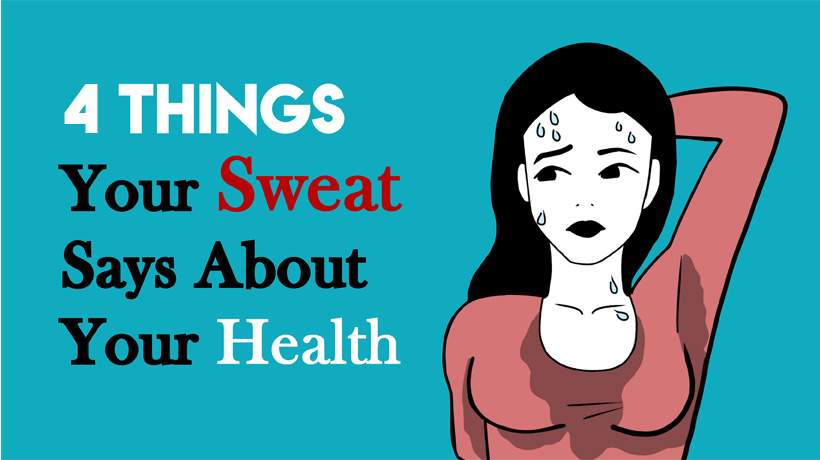You roll over your white linen sheets in a total daze, the sun dancing its way onto your groggy visage. You stretch your arm across the counter to check the time and…Oh my God! You’re late for work!
In the frenzy of all that follows—stuffing your bag, throwing your clothes on, grabbing a half-peeled banana—you forget one crucial step: deodorant! You panic. But panic makes you sweat. Now you’re drenched. Great. You try to air dry, but physical activity unleashes even more of this detestable moisture. Well, there’s nothing left to do but submit to the facts: this is going to be one stinky day.
We’ve all played the Frantic Franny role before and have thus become well-acquainted with the horrors of roaming the streets sans B.O. protection. But what we might not be so familiar with is that our sweat reveals much more about us than just our predisposition toward tardiness. With that being said, here are five things our sweat can indicate about our health.
You need more sodium
According to a study published in the Journal of Occupational Medicine and Toxicology, electrolyte (sodium) loss occurs as a result of prolonged sweating, and must be replaced to prevent imbalance in body fluids. If you are perspiring excessively, you might need to compensate for your sodium loss with coconut water or a sports drink like Gatorade.
You are stressed
High psychological strain has a substantial correlation with hyperhydrosis (excessive sweating); a lack of social recognition can trigger this chronic stress and increase depressive symptoms. According to the Public Library of Science One Journal, dysfunction of the autonomic nervous system can be the culprit in this hyperhidrosis.
One way to identify “stress sweat” is by its smell, which tends to be much more pungent than perspiration brought on by excessive heat. This is because it tends to be released by apocrine glands, which are thicker and richer in proteins and lipids than the traditional eccrine glands responsible for “exercise sweat.”
You have anhidrosis
If you don’t sweat, or don’t sweat a lot, you might have a condition called anhidrosis. It is marked by the inability of the body to cool itself down, which can lead to overheating and sometimes heat stroke.
Other symptoms to look out for, particularly if coupled with the lack of sweat, include:
- Dizziness
- Muscle cramps or weakness
- Flushing
- Feeling hot
You are out of shape
People who exercise regularly are more likely to start working up a sweat faster and more intensely than those who do not. If you tend not to sweat very much, especially during physical activity, it could be a sign that you should be more consistent with your workout routine.
Sources:
https://www.ncbi.nlm.nih.gov/pmc/articles/PMC2267797/
https://journals.plos.org/plosone/article?id=10.1371/journal.pone.0092412
https://www.healthline.com/health/stress-sweat#odor
https://www.mayoclinic.org/diseases-conditions/anhidrosis/symptoms-causes/syc-20369400



